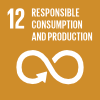Frigoveneta
Environmental Thesis
Commercial refrigeration is responsible for ca. 500 million ton of greenhouse gas (“GHG”) emissions, which represents about 1% of all global emissions, more than the whole emissions of the cruising industry.
Within commercial refrigeration, c. 2/3 of the emissions related to direct emissions from refrigerants and 1/3 to indirect emissions, primarily from electricity use.
Transition to systems based on low-GWP – such as natural refrigerants – has the potential to significantly reduce GHG contribution of the sector.
Frigoveneta is leading this transition since several years by designing, installing and servicing commercial refrigeration systems that widely use natural refrigerants and that are energy efficient. As such, Frigoveneta contributes to both Resource Efficiency and Pollution Control, resulting in significant CO2 Emission Reduced and Energy Saved.
Business
Founded in 1980 and based in Villa Bartolomea (Verona, Italy), Frigoveneta designs, builds and sells centralised refrigeration systems predominantly for food retail and cold storage applications. With a business model focused on the most technical and highest-value segment of the market, Frigoveneta gained a strong reputation for offering a combination of refrigeration systems coupled with strong after-sales service, outperforming competitors in performance and reliability and gaining the trust of some of the most notable players in the modern trade and cold storage sectors.
The company is focused on (and acknowledged for) providing energy efficient solutions and is specialized in refrigeration systems based on low Global Warming Potential (“GWP”) and natural refrigerants. Frigoveneta covers the entire value chain from systems design and assembly to installation and after-sale services.
Environmental Impact
Ambienta only invests in businesses which have a positive impact on the environment through either, or both, a Resource Efficiency or Pollution Control contribution. Our proprietary methodology, the Environmental Impact Analysis, allow us to measure the contribution of different businesses to sustainability in terms of Resource Efficiency and Pollution Control which we capture through 11 Environmental Metrics.
For each portfolio company we report its impact in relation to our metrics.
Resource Efficiency
Frigoveneta’s contribution to Resource Efficiency is summarized by the following Environmental Metrics:

Energy Saved
Pollution Control
Frigoveneta’s contribution to Pollution Control is summarized by the following Environmental Metrics:

CO2 Emissions Reduced
Sustainable Development Goals
Our Methodology and Metrics are fully aligned with the UN Sustainable Development Goals adopted in 2015. Through our investment scope definition that focuses on products and services that improve Resource Efficiency and Pollution Control we fully capture 10 of the 17 Goals and their respective sub-goals.
For each portfolio company we report its impact in relation to the SDGs.



